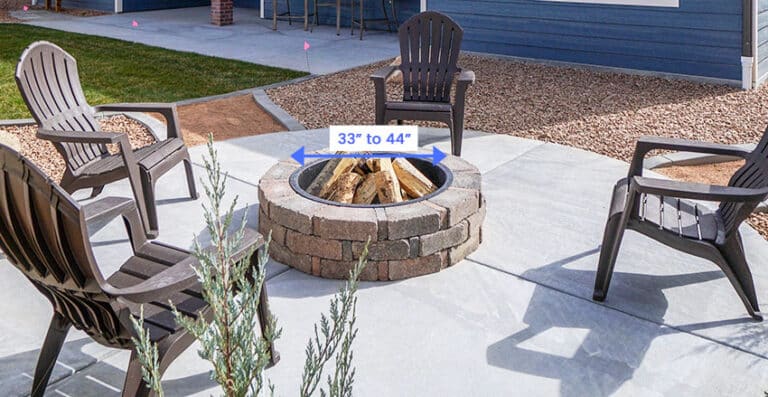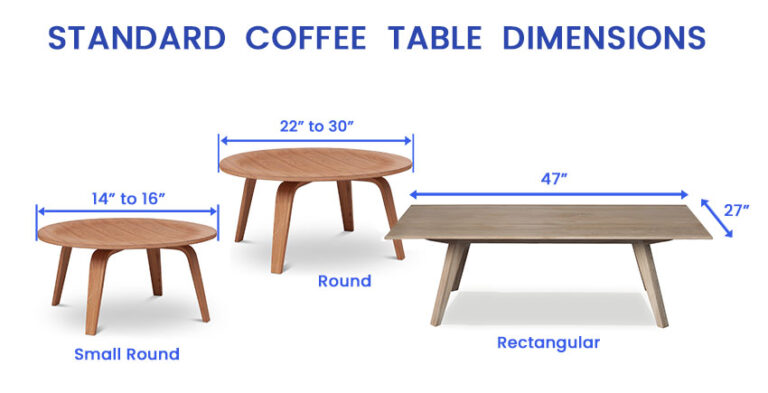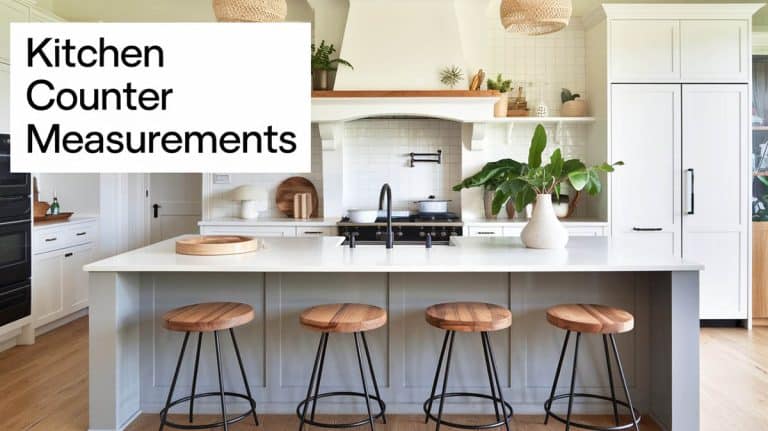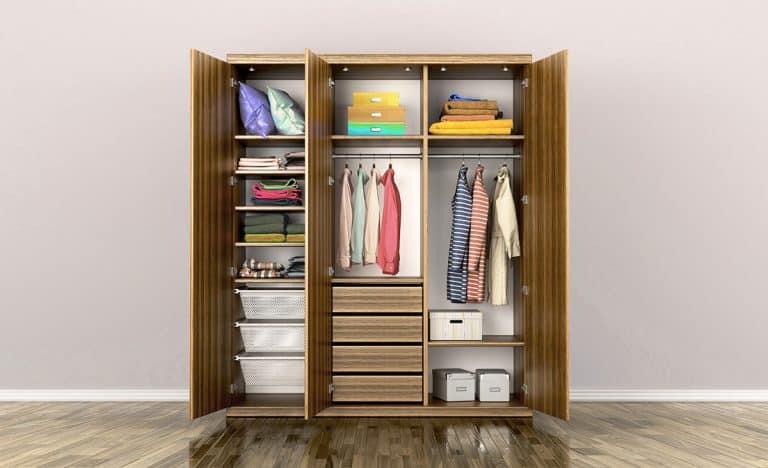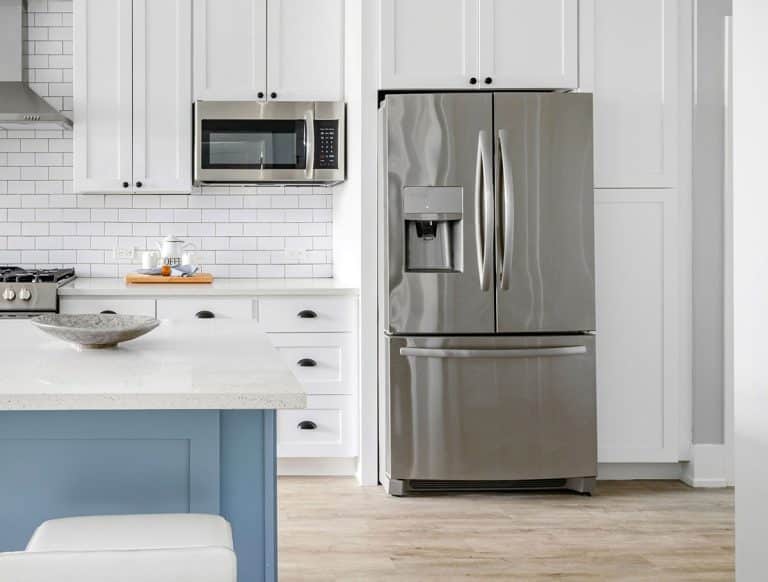Dining Table Dimensions For Different Shapes & Sizes
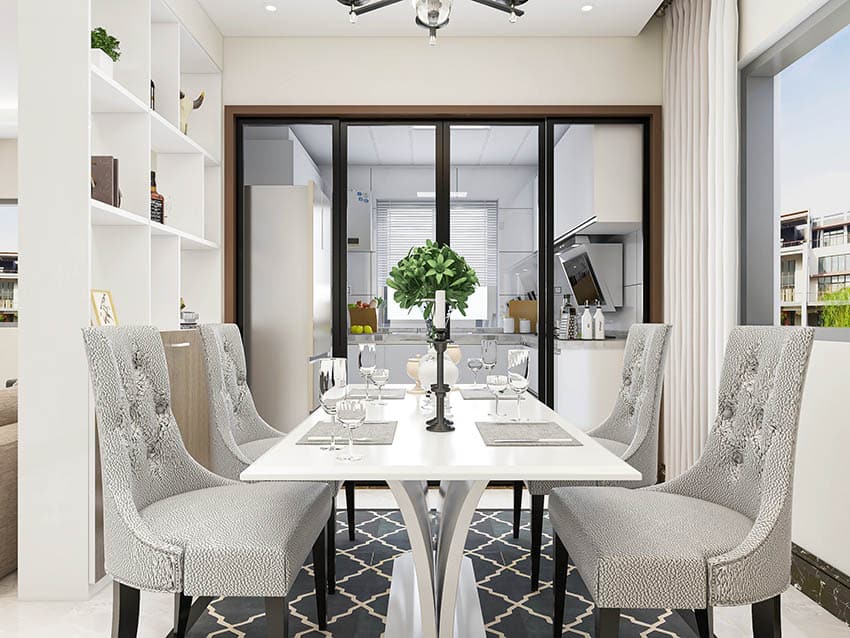
Table dimensions are important when planning your dining room’s layout and when purchasing linens, tablecloths, and chairs. No host wants to welcome guests to their home for a holiday dinner and realize there isn’t enough room for everyone. When this happens, the folding card table usually gets dragged out, and the kids get seated at the end, feeling, at times, left out. This article will help you avoid cramped furniture, narrow walkways, and tables that are too small for your dinner party by outlining standard dining table dimensions.
Standard Dining Table Dimensions
Dining room tables are typically designed with one of three shapes: square, rectangle, or circle. Some tabletops are designed using real wood in its natural state with naturally uneven edges. However, standard measurements still apply as the overall size and shape determine how many people can fit comfortably at the table.
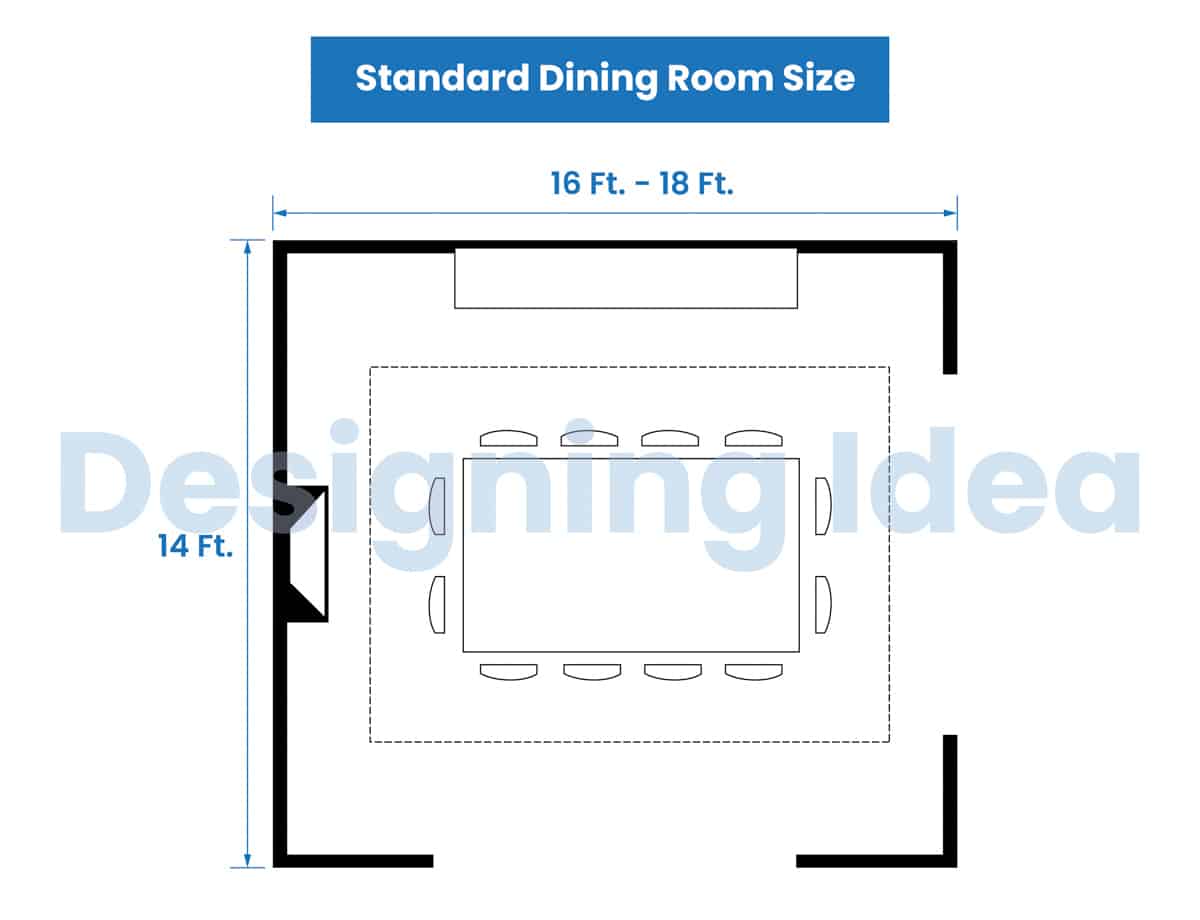
Rectangle Sizes
Below are the standard sizes per number of people who can be seated at each size and shape table. Remember, if you purchase a tabletop with leaves, check where the leaves are stored. It’s more convenient to store them underneath than keep the leaves in a closet.
2 Person
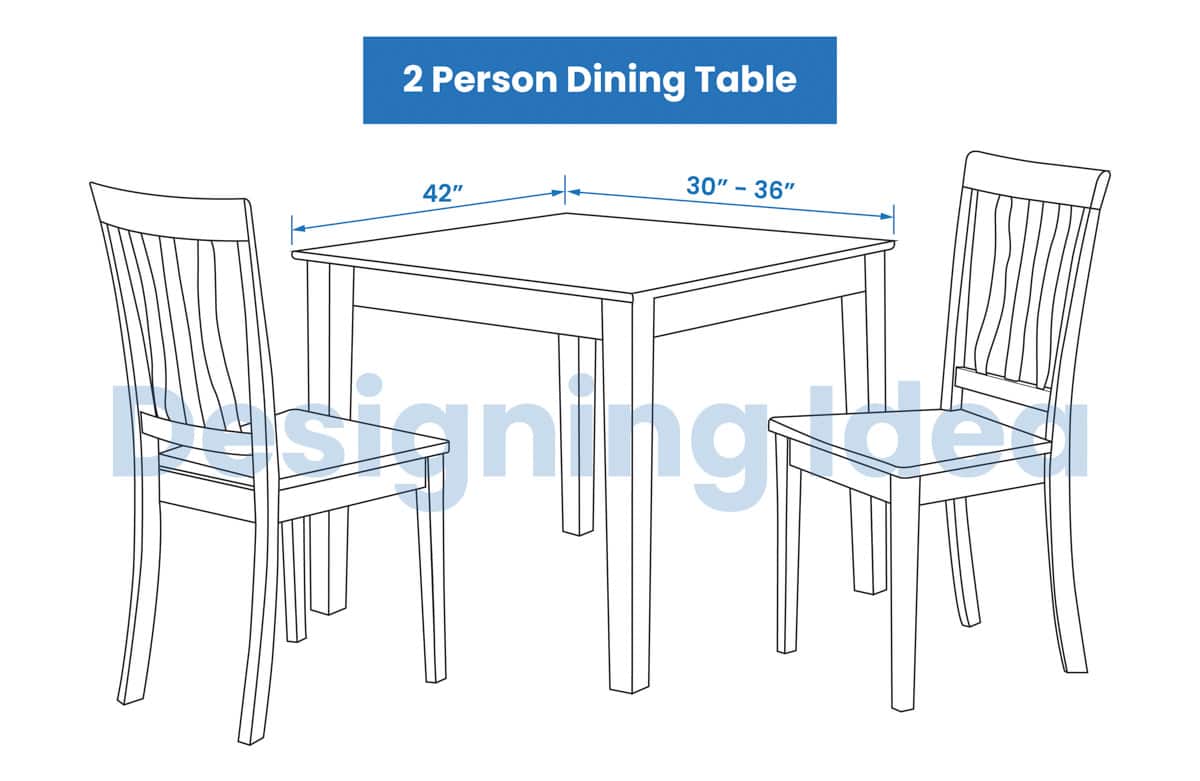
• Rectangle: 42 inches long, 30 to 36 inches wide
4 Person
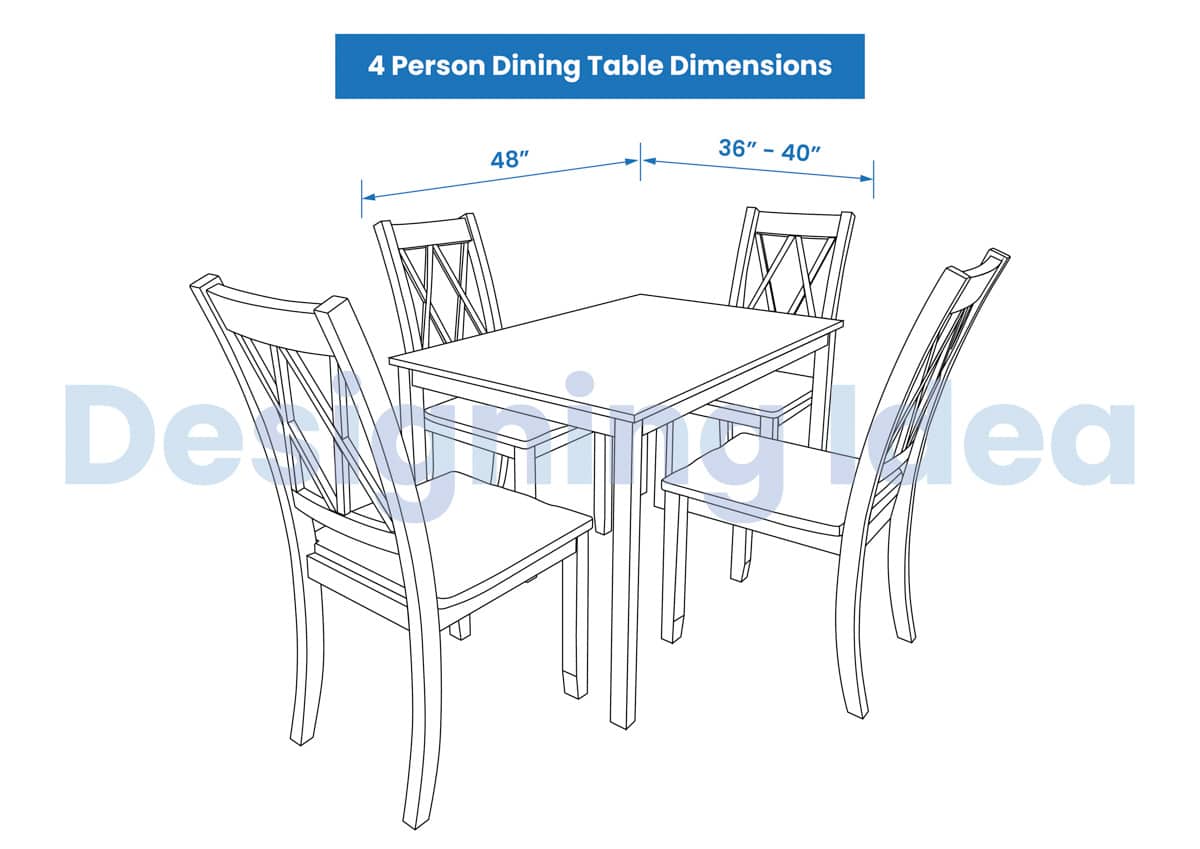
• Rectangle: 48 inches long, 36 to 40 inches wide
6 Person
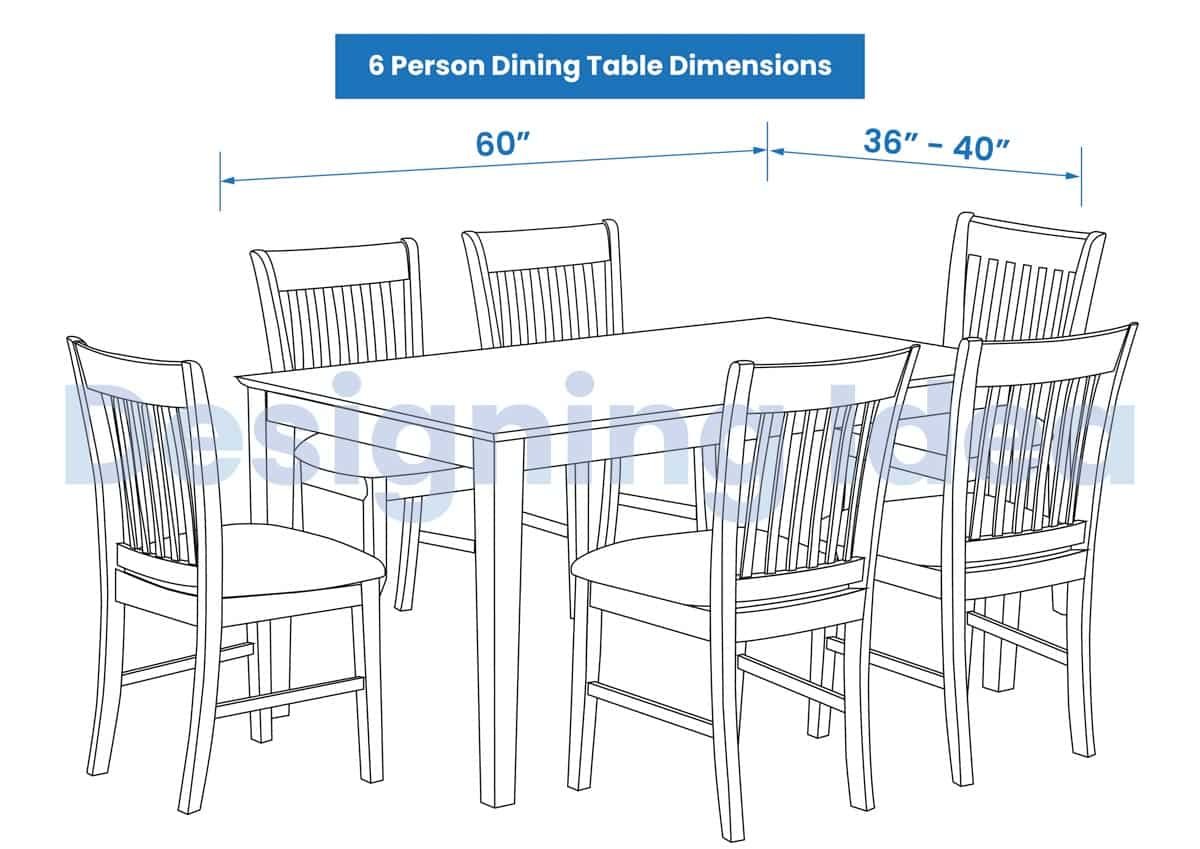
• Rectangle: 60 inches long, 36 to 40 inches wide
8 Person
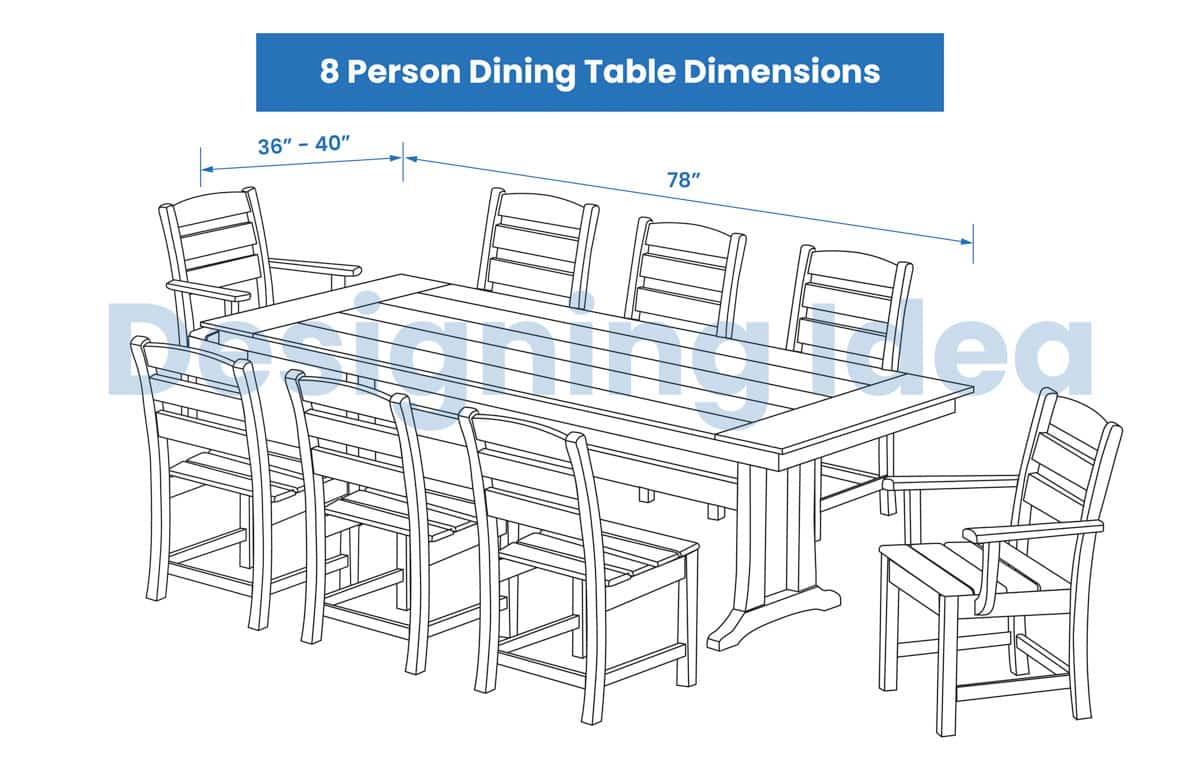
• Rectangle: 78 inches long, 36 to 40 inches wide
10 Person
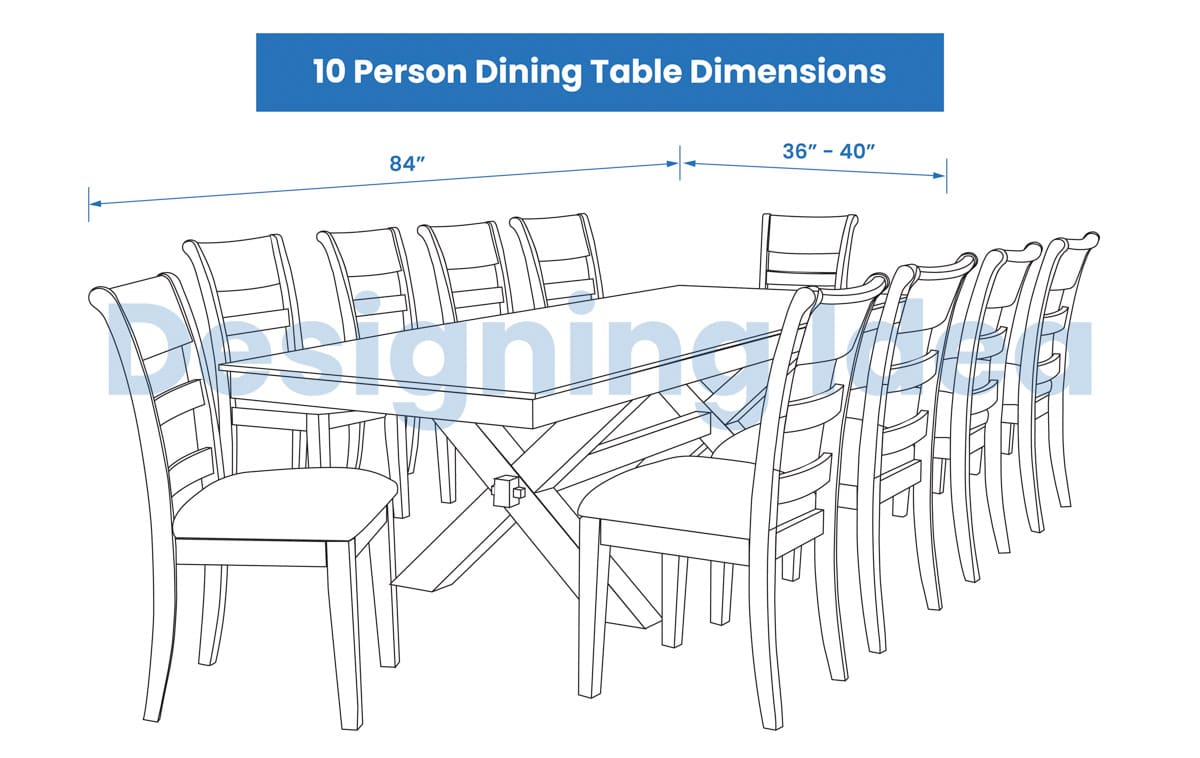
• Rectangle: 84 inches long, 36 to 40 inches wide
12 Person
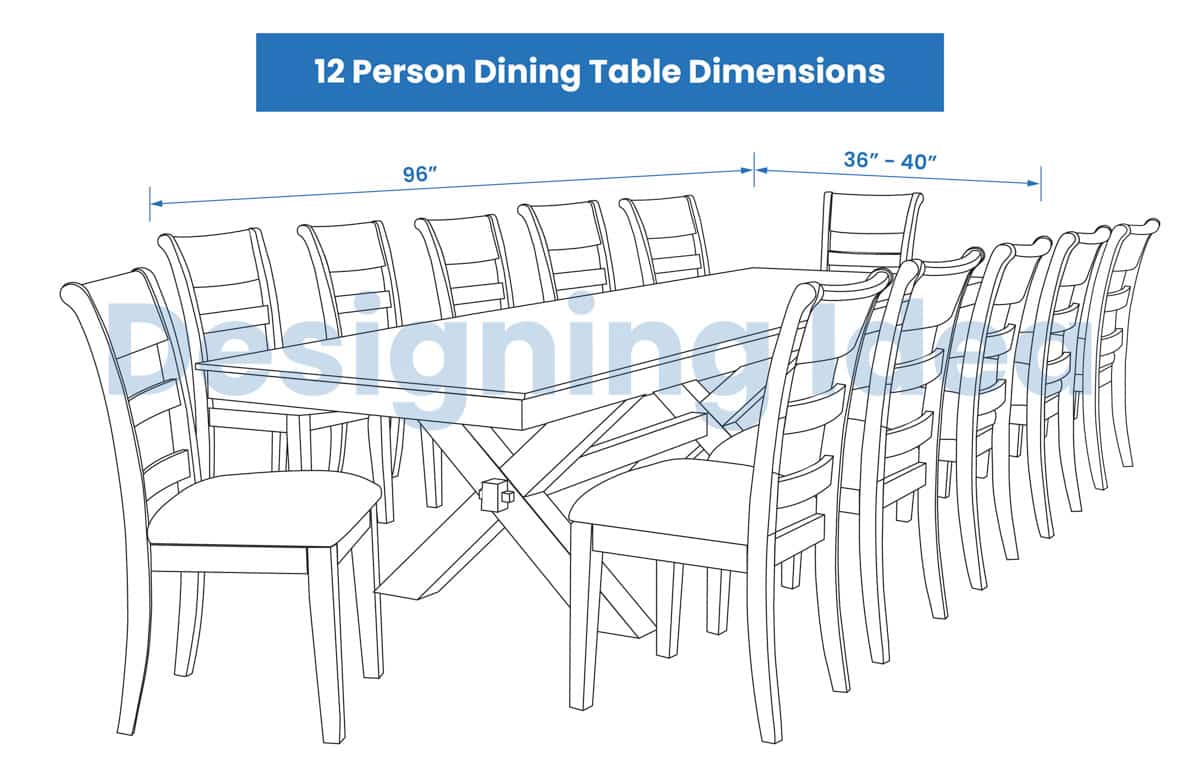
• Rectangle: 96 inches long, 36 to 40 inches wide
While rectangular dining room tables offer many configurations based on the number of people you want to seat, choosing one that’s at least 36″ but not more than 40″ wide is recommended.
This allows enough room for place settings and leaves enough room for passing food platters. If you plan on purchasing a sideboard or food buffet as part of your dining room set, a 30-inch wide tabletop will also work well.
For the table’s length, figure out the most people you’d like to seat at the same time and choose a length to fit everyone. Remember that the basic rule is 24″ of space per person per side.
Square Sizes
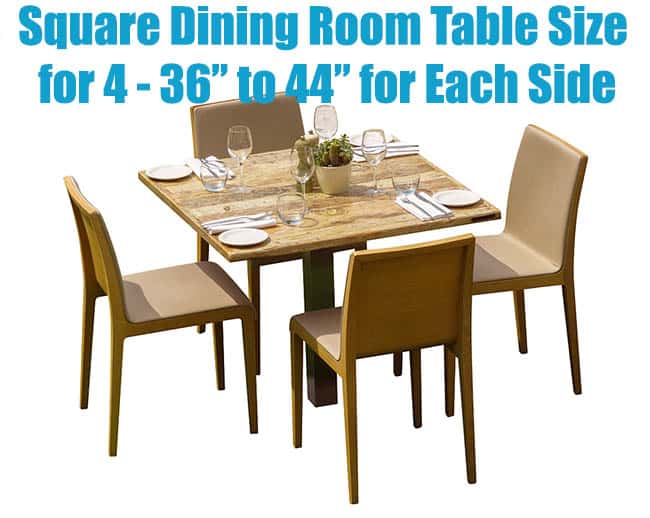
Square tables have equal length and width and typically are made for four people at the most. The standard range is 36″ to 44″, leaving space for up to four people with enough elbow room.
2 Person
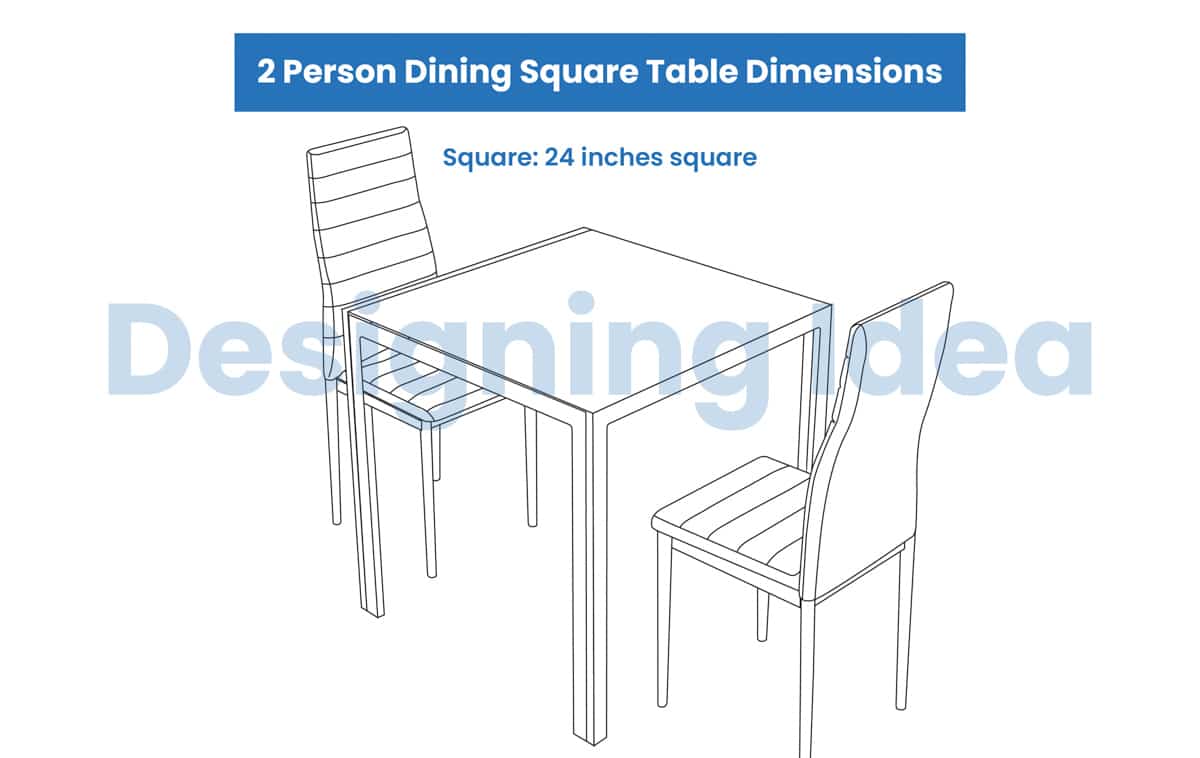
• Square: 24 inches square
4 Person
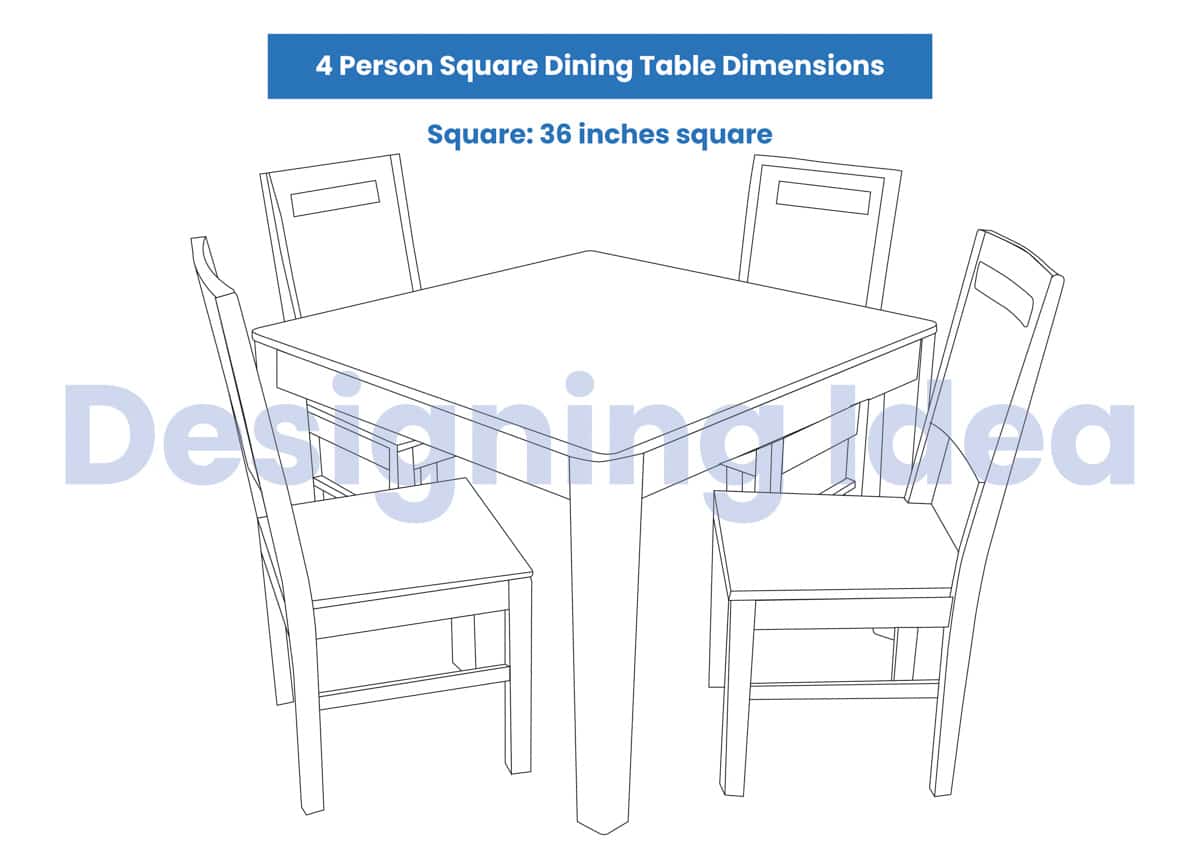
• Square: 36 inches square
6 Person
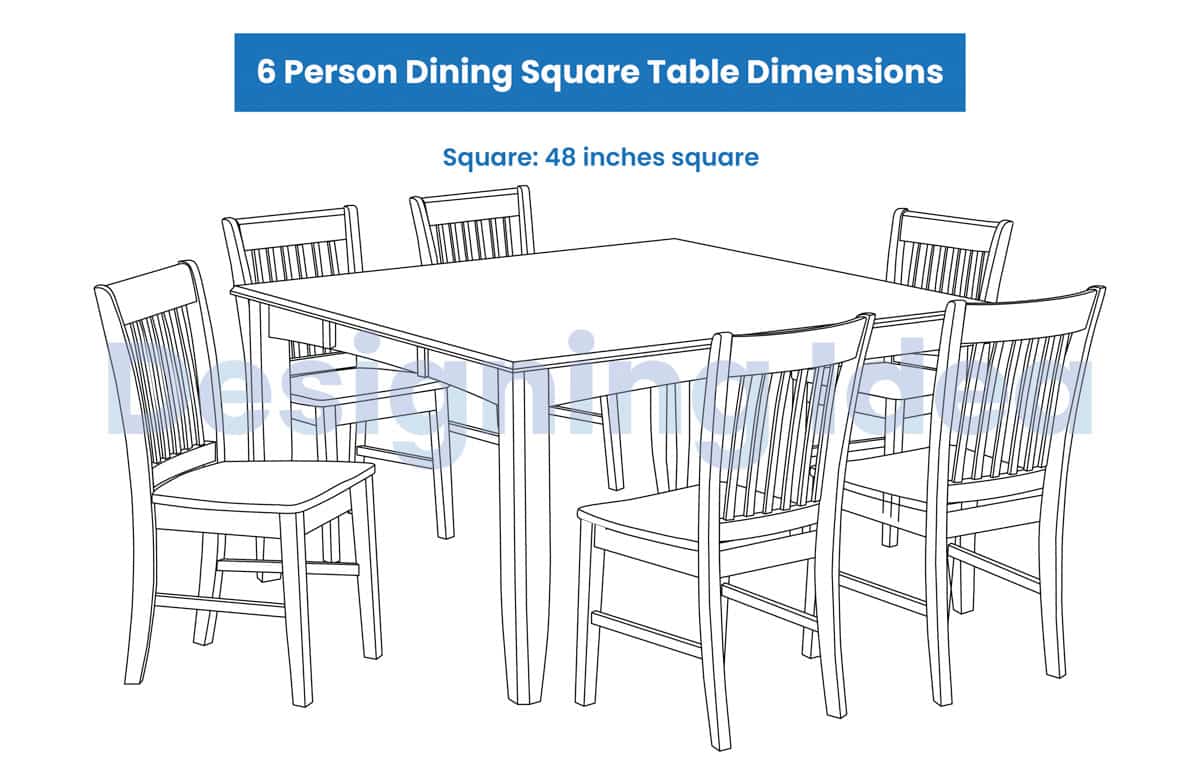
• Square: 48 inches
8 Person
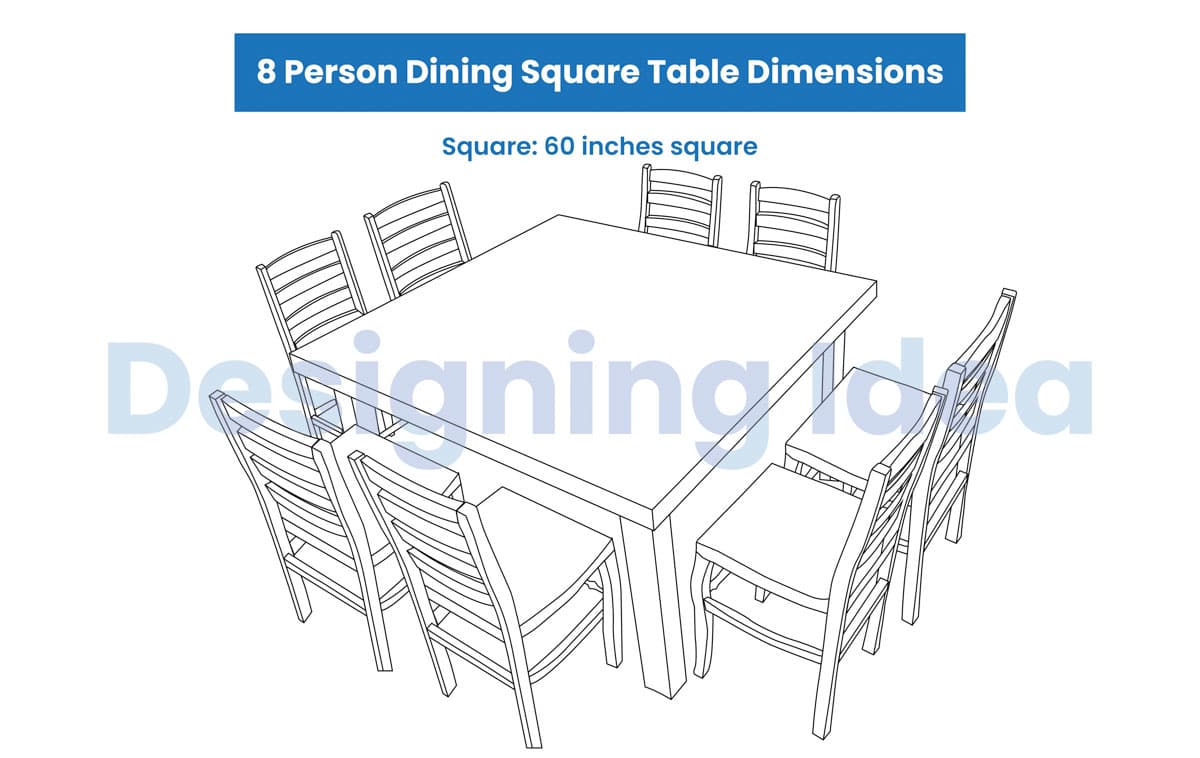
• Square: 60 inches
10 Person
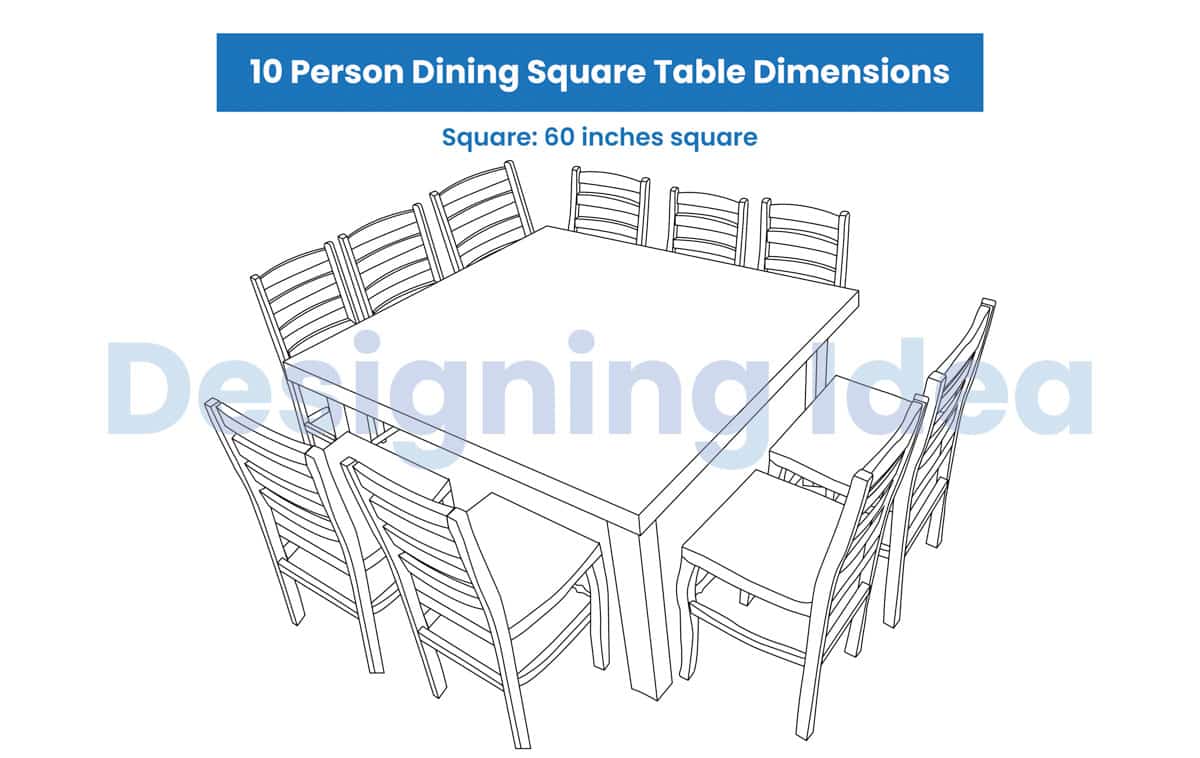
• Square: 60 inches
12 Person
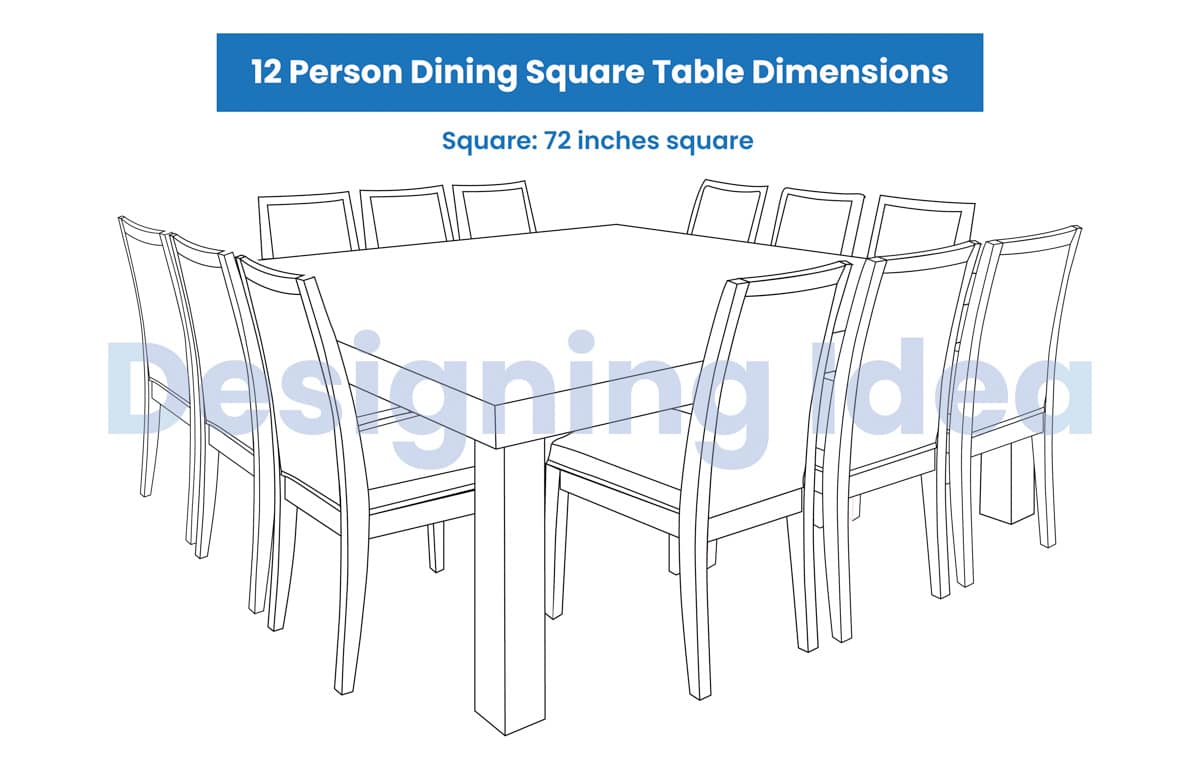
• Square: 72 inches
Round Sizes
Round tables are similar to square shapes when fitting in a small space. The diameter, or the length from one edge to the other crossing the center, is the size used to measure round tables.
Not having corners allows flexibility for seating and makes it easier for diners to see each other. Round dimensions can be used for hexagon-shaped and octagon-shaped tables.
The standard round dining table dimensions for two to four people is 36″ in diameter. For four to six people, the dimensions are 48″ in diameter.
Circular Sizes
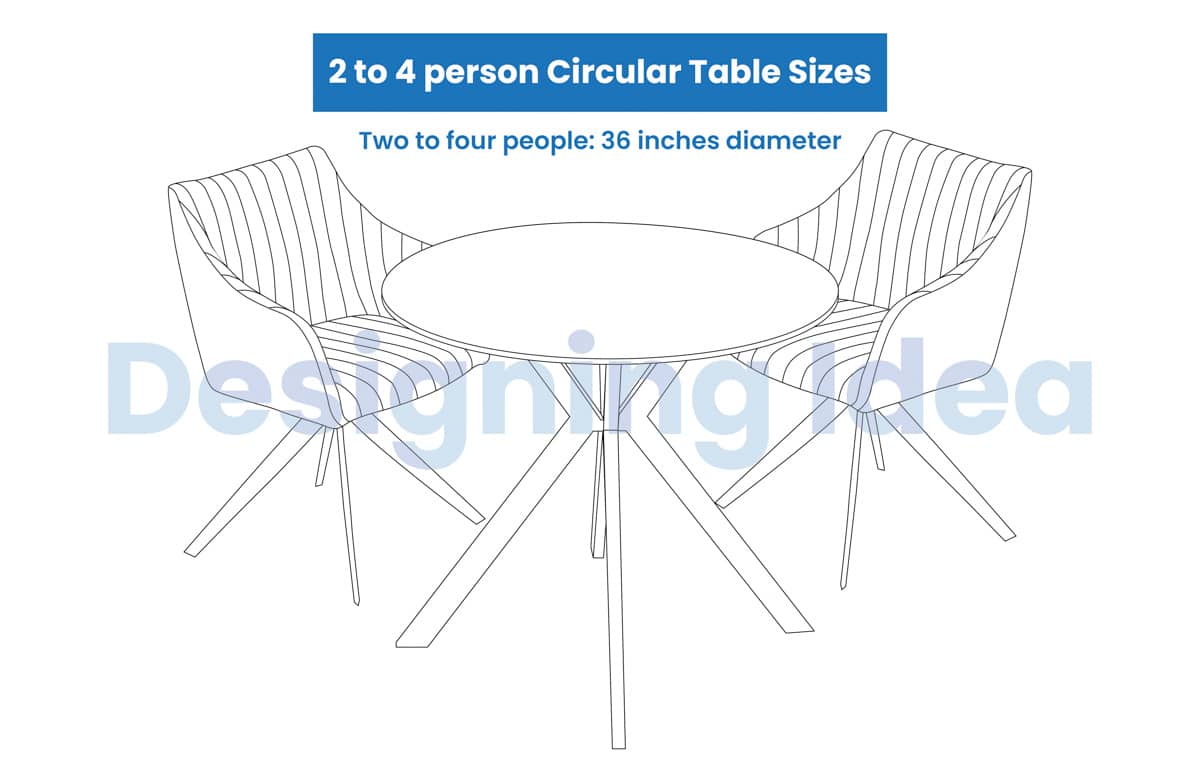
• Two to four people: 36″ diameter
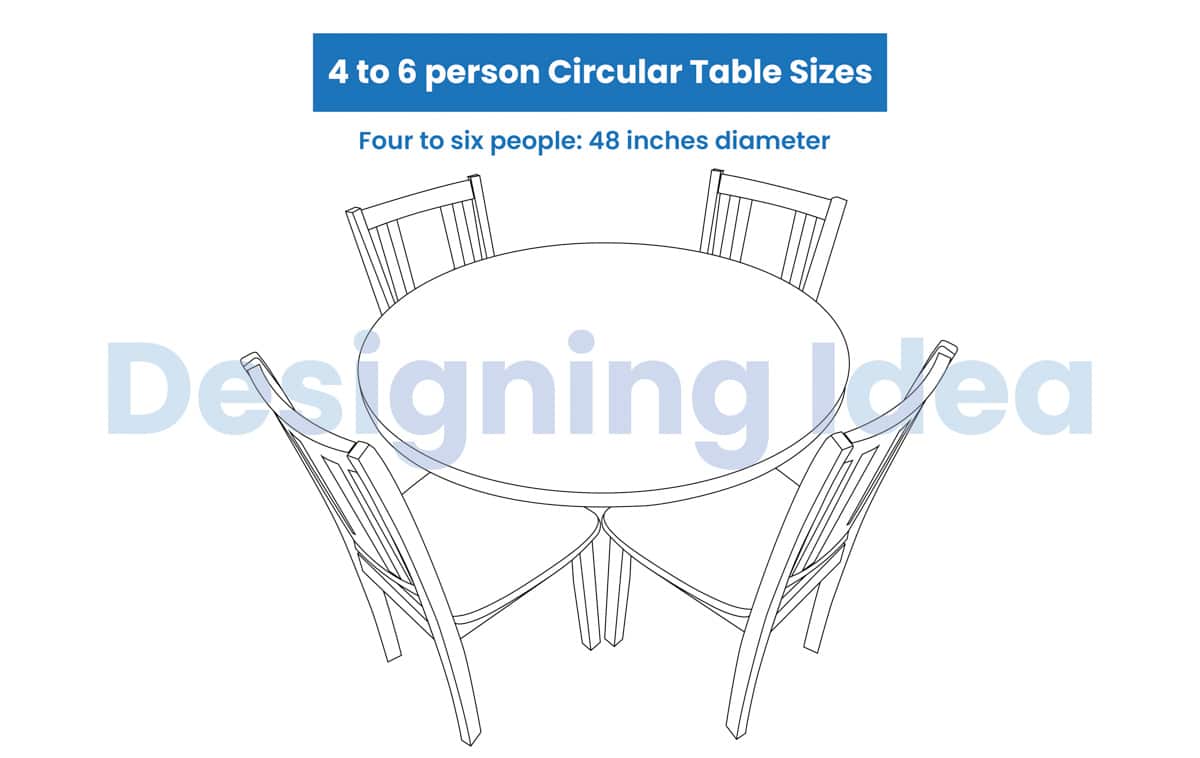
• Four to six people: 48″ diameter
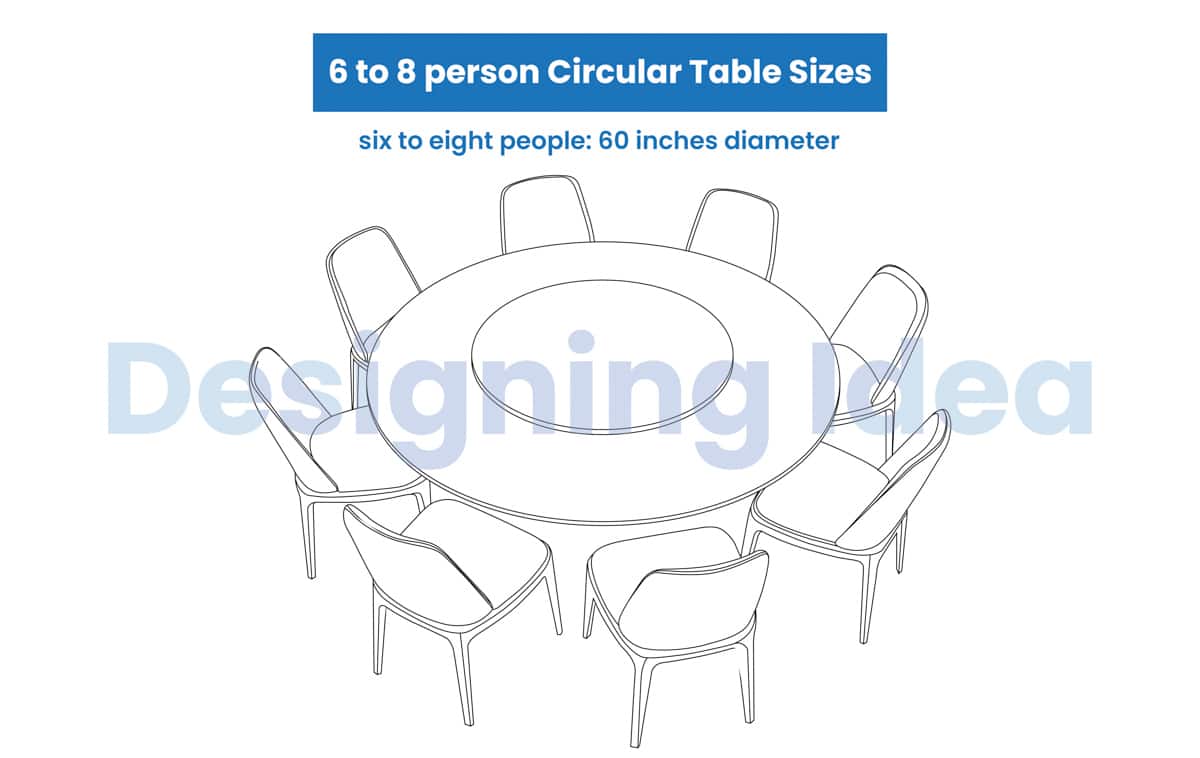
• Six to eight people: 60″ diameter
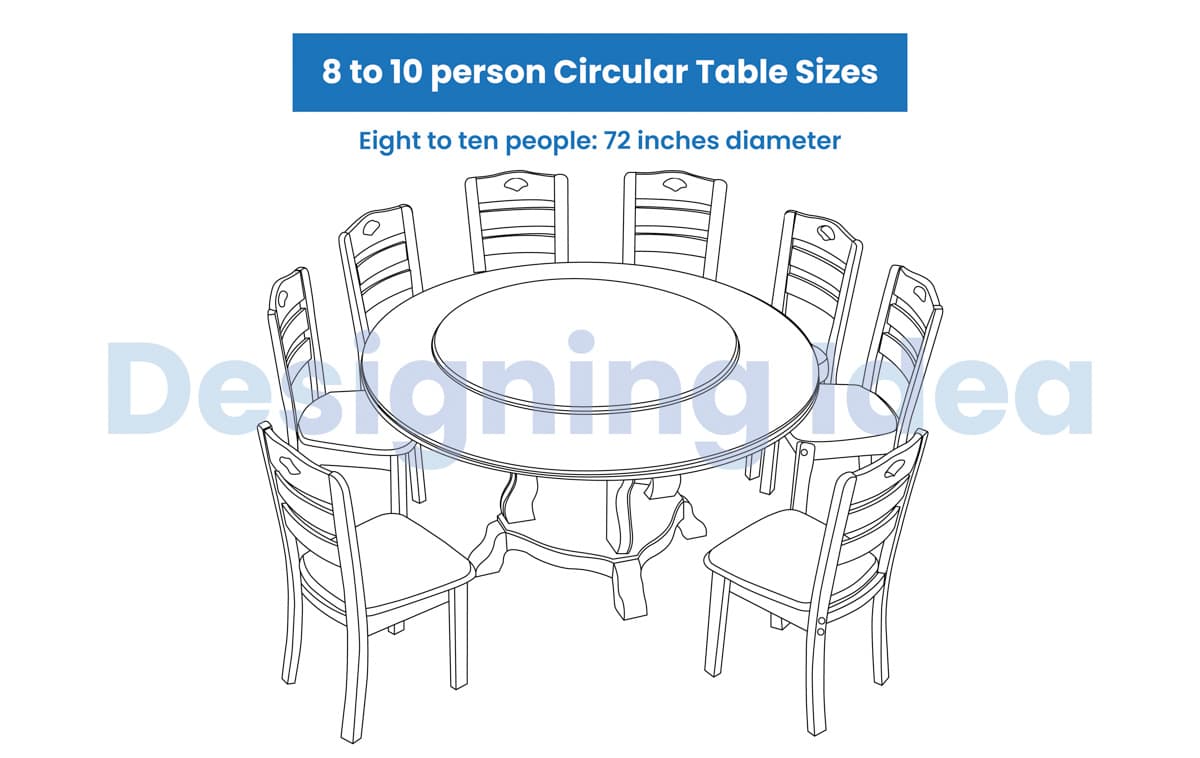
• Eight to ten people: 72″ diameter
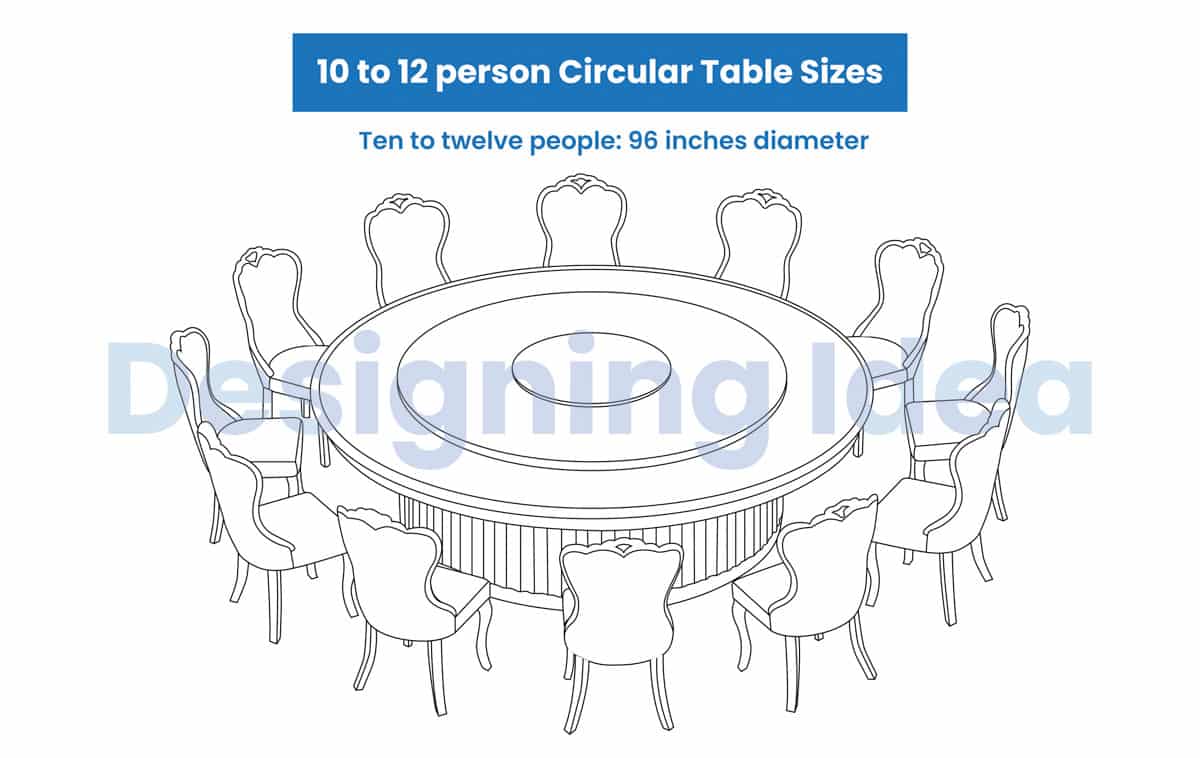
• Ten to twelve people: 96″ diameter
Oval Sizes
Oval tables, like round ones, provide more space around the tabletop and help the dining room not appear crowded. Oval shapes follow the same standard sizes as rectangular tables for length and width.
2-Person Table
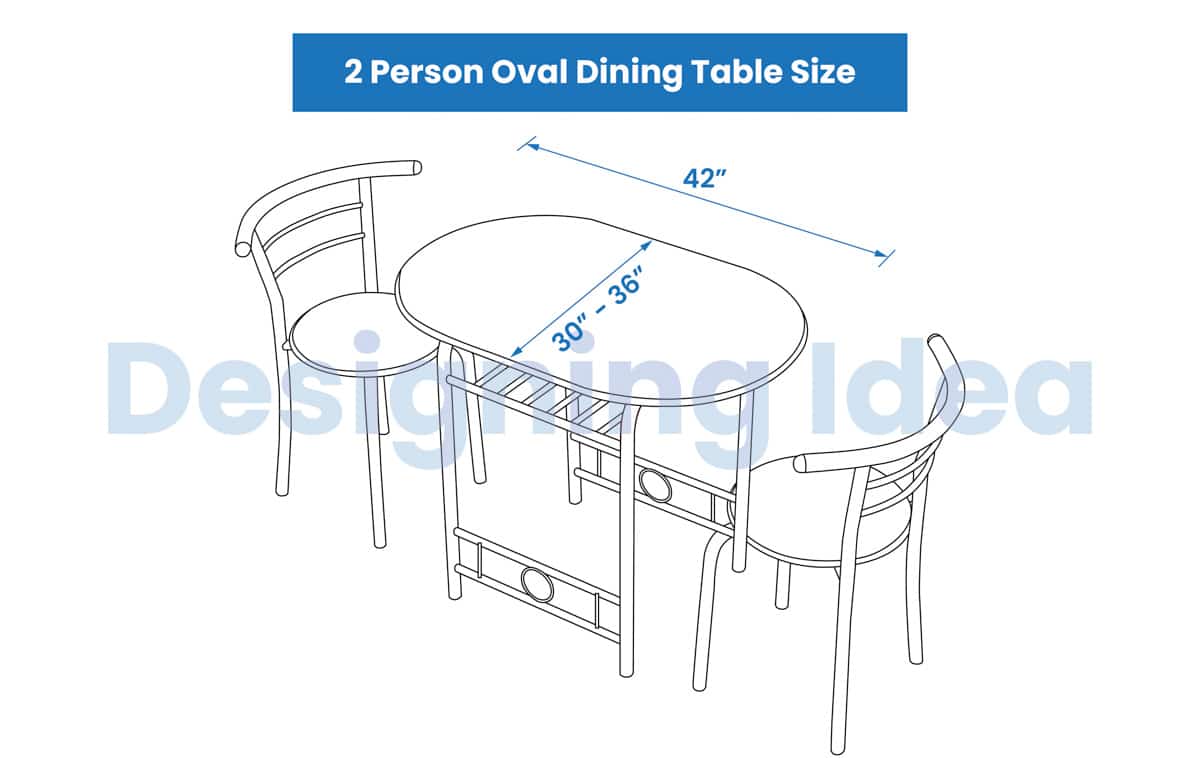
• Oval: 42 inches long, 30 to 36 inches wide
4-Person Table
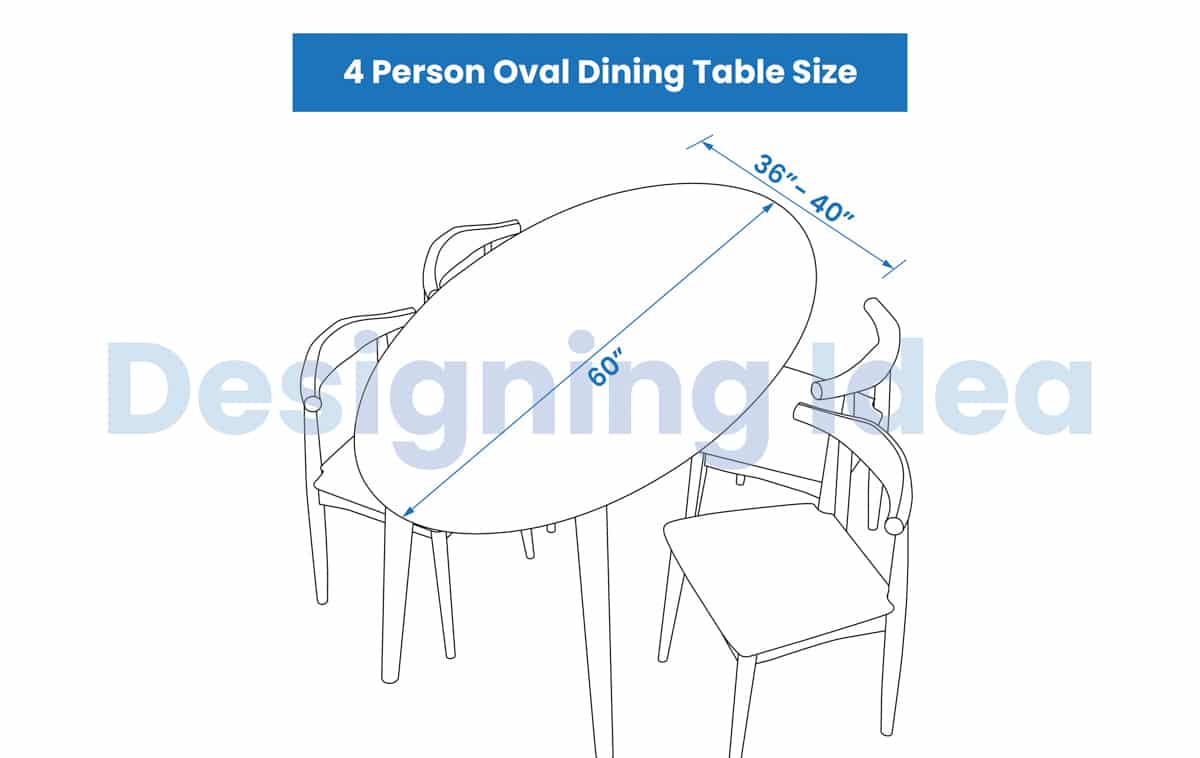
• Oval: 60 inches long, 36 to 40 inches wide
6-Person Table
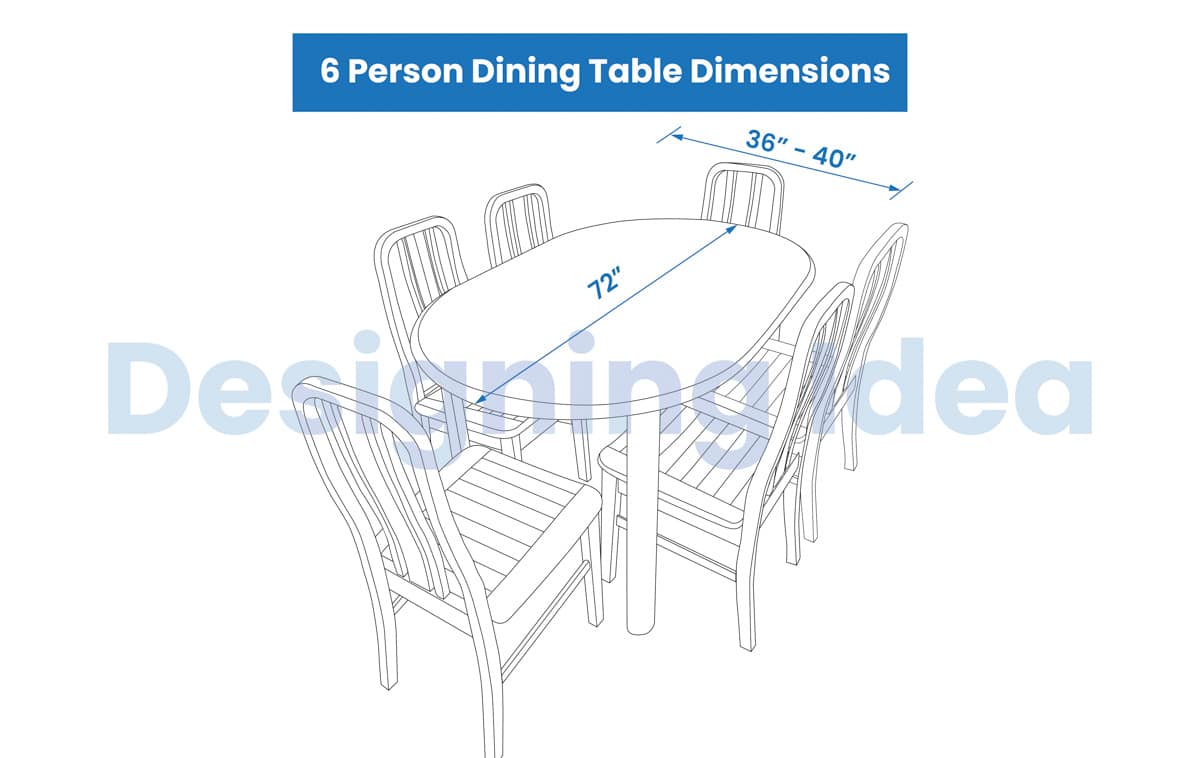
• Oval: 72 inches long, 36 to 40 inches wide
8-Person Table
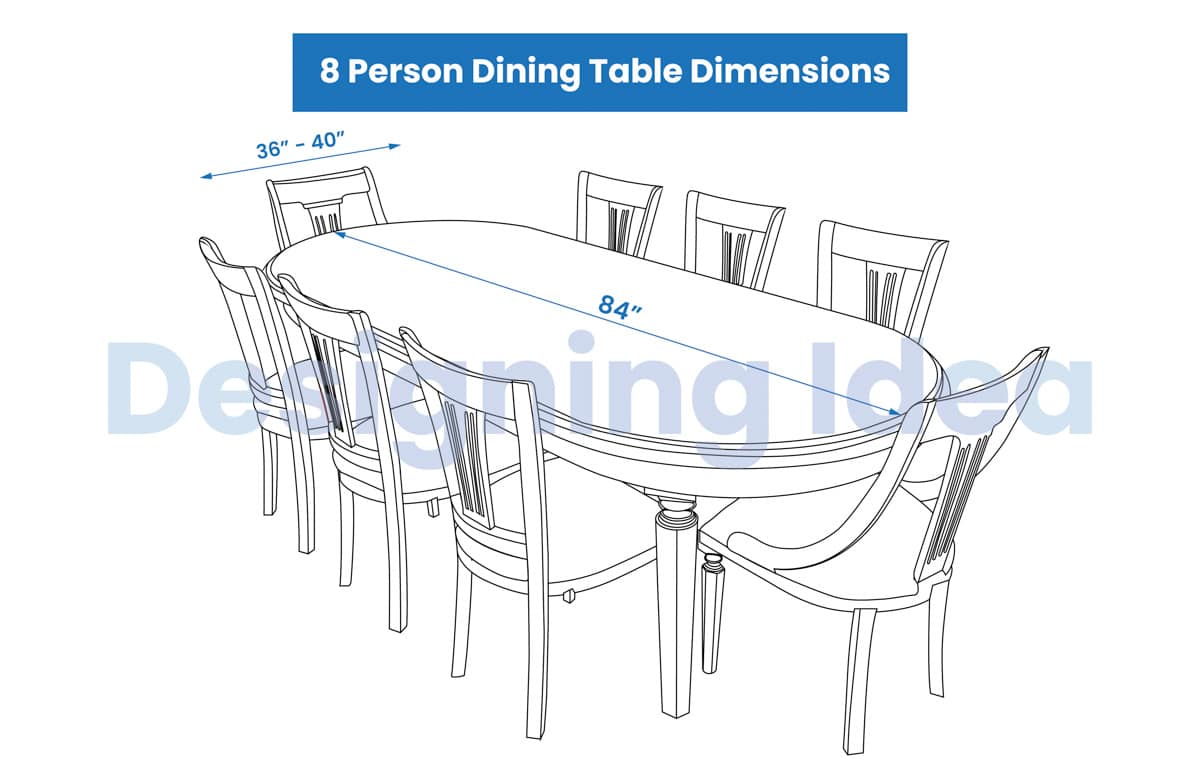
• Oval: 96 inches long, 36 to 40 inches wide
10-Person Table
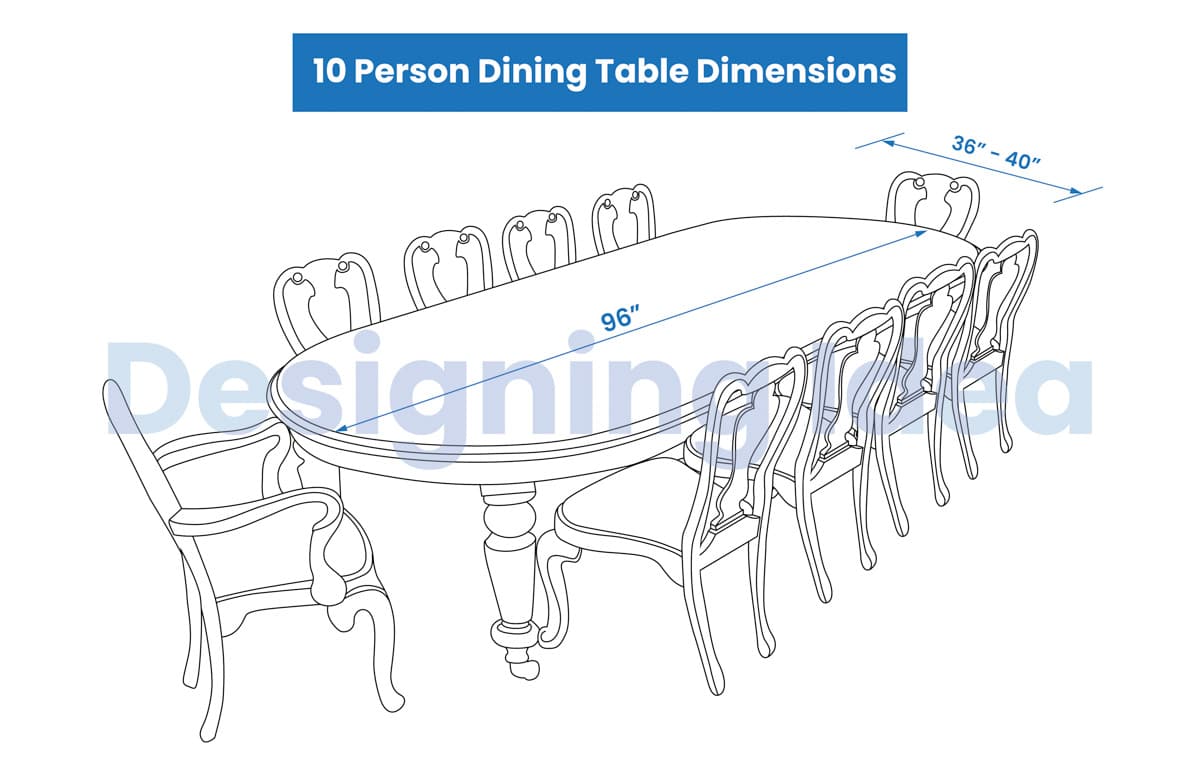
• Oval: 84 inches long, 36 to 40 inches wide
12-Person Table
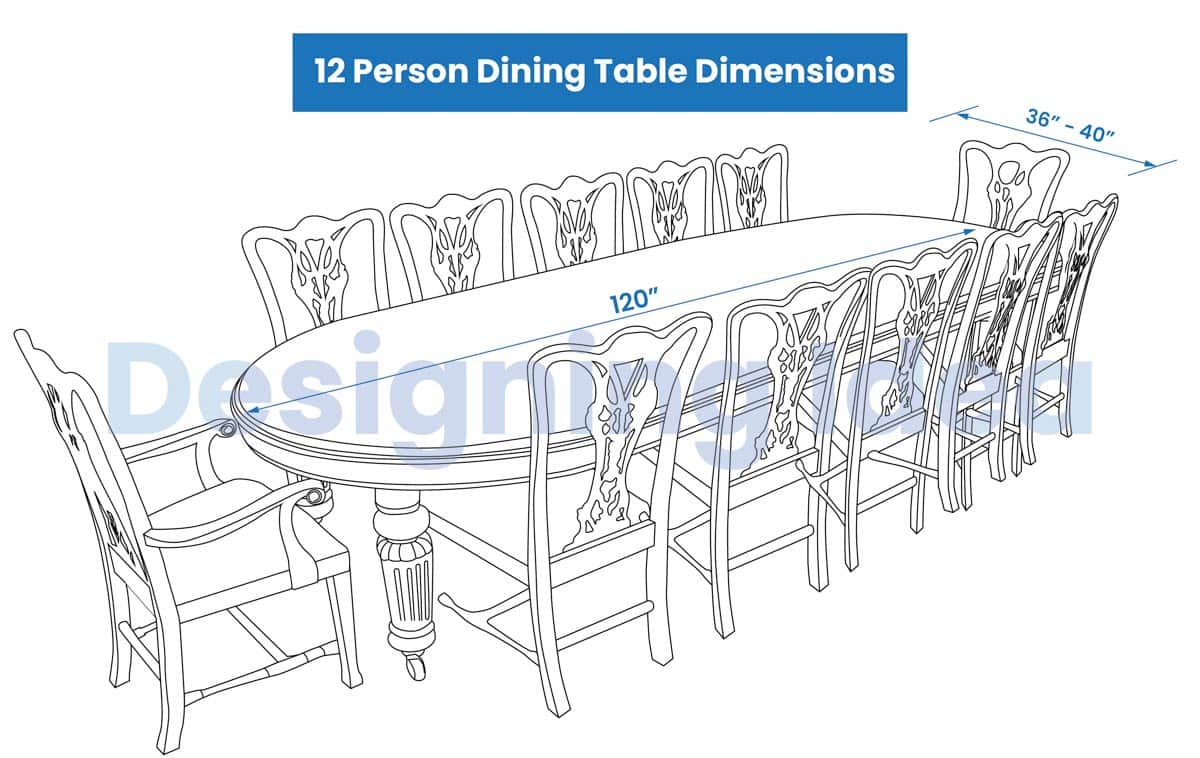
• Oval: 96 inches long, 36 to 40 inches wide
Dining Table Size Calculator
Select the number of people you want to seat:
This dining table size calculator tool helps you determine the recommended size(s) for tables based on the number of people you want to seat.
When you select the number of people from a dropdown menu and click the “Generate” button, the calculator displays the message with the recommended size(s) for a square, rectangle, and oval tables for that number of people.
This calculator tool gives a rough estimate based on the minimum space required for each tabletop setting and chair.
Table Height Dimensions
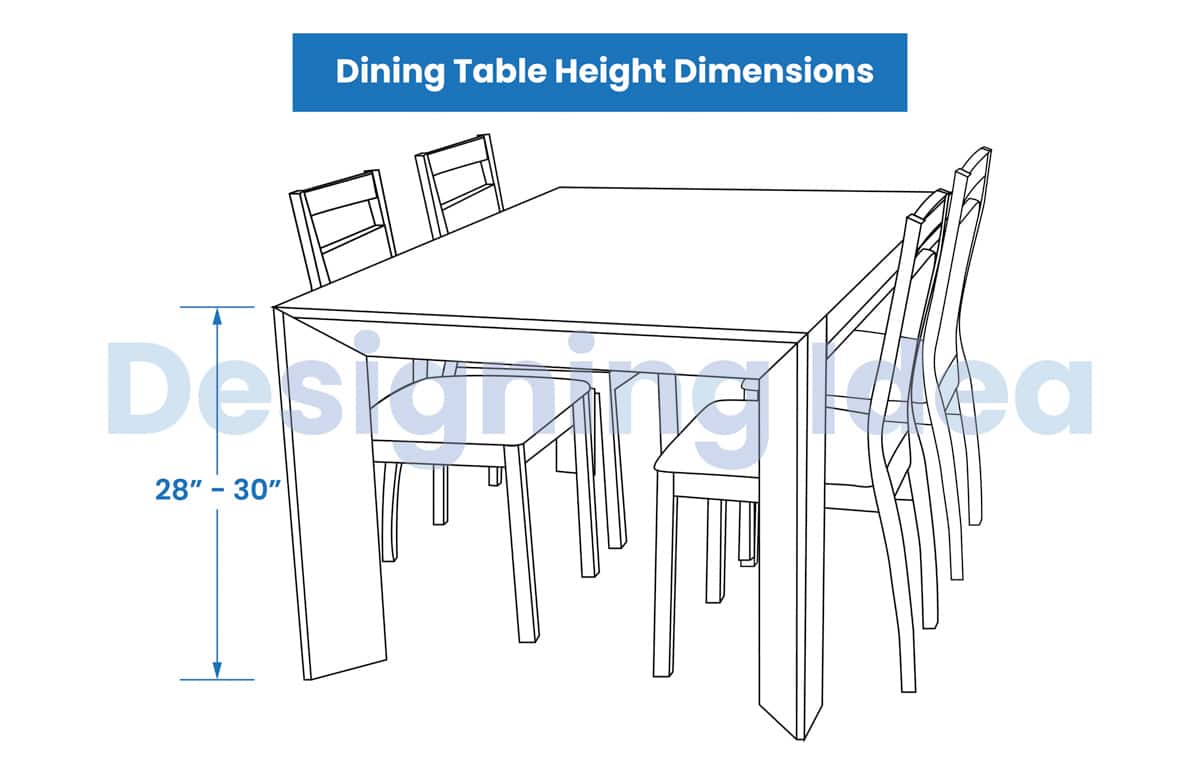
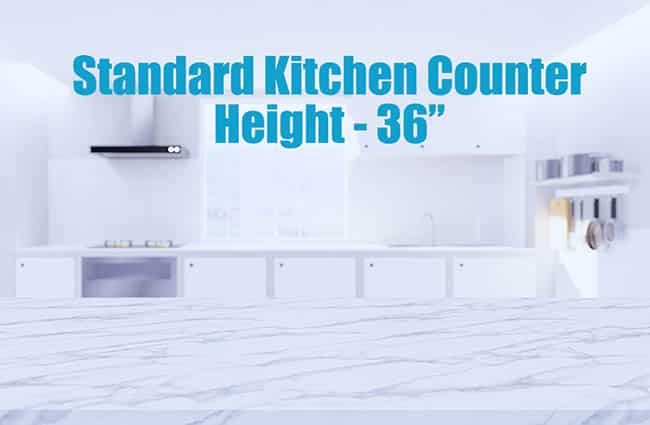
Counter height dining tables are 36″ high and match the height of a kitchen island or bar. This makes it easy to use for informal eating in the kitchen, visiting over coffee, or doing homework with the kids while cooking.
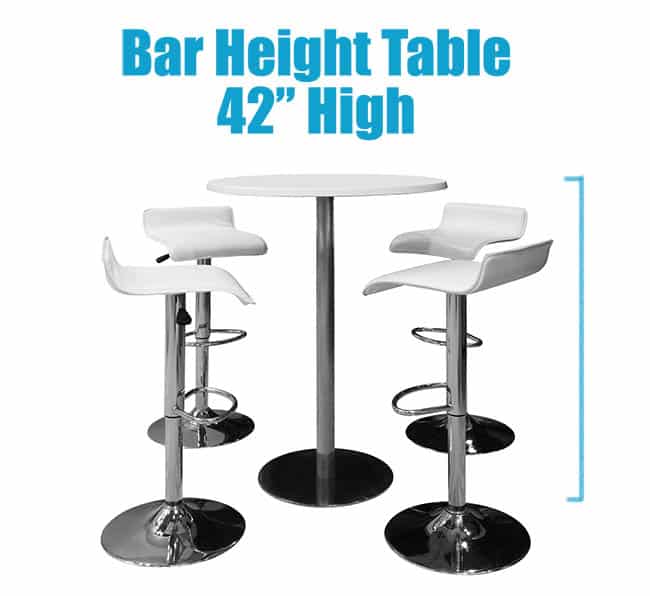
Bar height tables are 42″ high and work well as a gathering surface for entertaining. The height makes transitioning from standing to sitting on a bar stool easy.
How Do You Determine the Size of a Table?
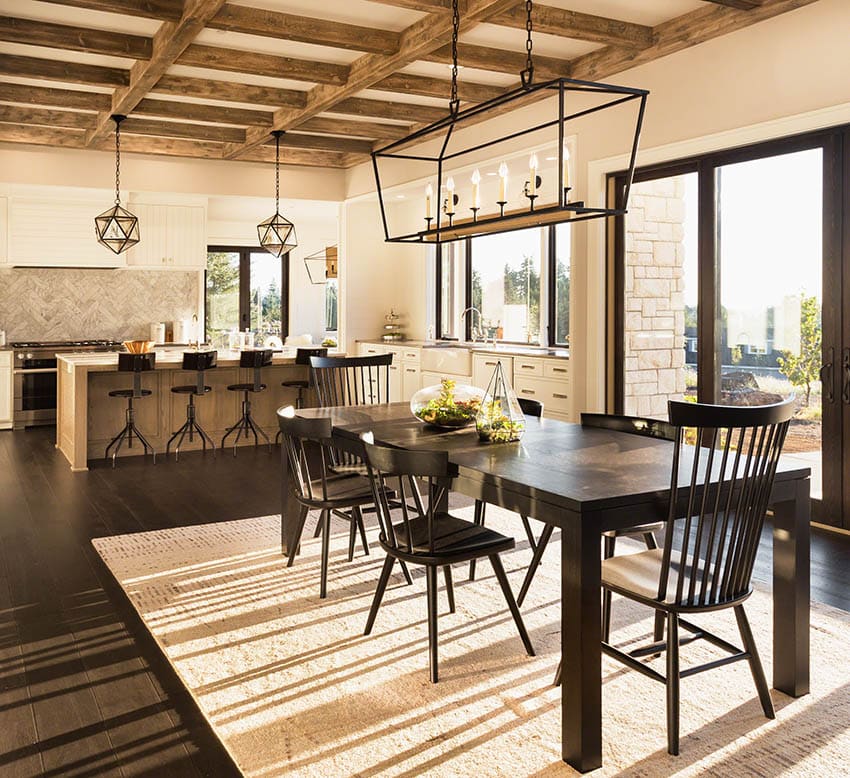
First, consider the width and length of your dining room and where windows and other pieces of furniture will be placed. It helps to draw a square on a piece of paper representing the dining room size, using a quarter-inch to represent each foot along the four walls.
Allow for indents and irregular built-ins by drawing these on the lines. Erase the line for the length of the door or opening along the wall it’s located.
Measure the width and depth of any furniture you will be adding in addition to the dining room tabletop. Draw these up against the lines representing each wall. (Tip: if you cut out the pieces of furniture from another sheet of paper, you can easily move them around to rearrange placement.)
Once complete, draw another square in the middle of the room, leaving clearance around the table’s sides for people to pass through.
The best distance is 48″ from the table’s edge to the nearest wall or piece of furniture, with A minimum clearance of 30″. The square needs to be drawn at the distance you prefer for clearance. When you’re done, measure the length and width of the square. This is the largest size allowed for the furniture piece.
Dining Room Layout
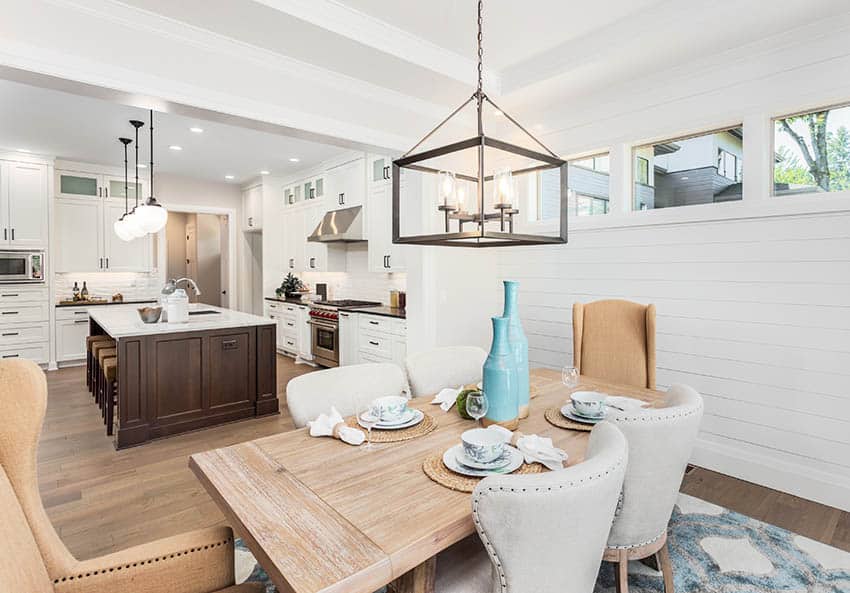
Manufacturers design and build dining room furniture with a set of standard sizes as their guide. This allows for chairs and benches to be made to fit each size and shape. A dining room requires more space to move around in than a kitchen or bedroom. Plan a layout around the dining room furniture you need using the instructions above. You may need to factor in extra furniture first.
Lighting is another important consideration when laying out your dining room design. We have more details about dining room chandelier sizes here or read more about the types of dining room lighting.
Standard Dining Room Size
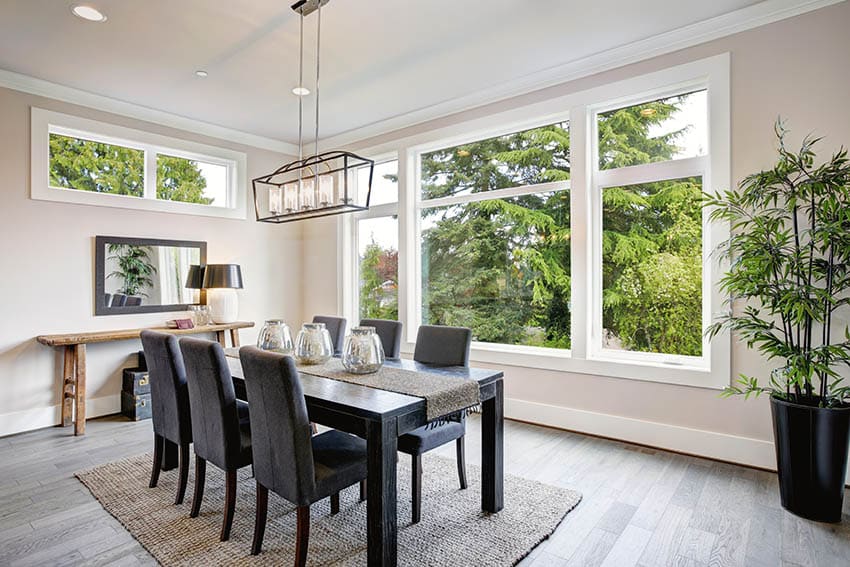
A dining room may be any size or shape but typically equals two hundred square feet. This may be laid out as 10 feet by 20 feet. Larger dining rooms may be 14 feet by 18 feet or more.
Table Seating Arrangements
Always plan your dining room layout and table’s size around the largest capacity of people you plan on having around the tabletop. Sometimes, a chair can be pulled up to join, or guests may be seated on a veranda or patio.
Avoid overly large centerpieces, especially on round tables that can block other guests’ views. Remember, if you purchase a tabletop with one or more leaves, the full length and width have to fit in your dining room.
For the traditional formal seating arrangement, hosts sit at the head and foot, with honored guests directly to the right side of the host. With a more informal family style, all family members sit together, with kids in the middle and parents on opposite sides.
If you plan on selling your home or would just like to get additional ideas, visit our staging a dining room article here.

